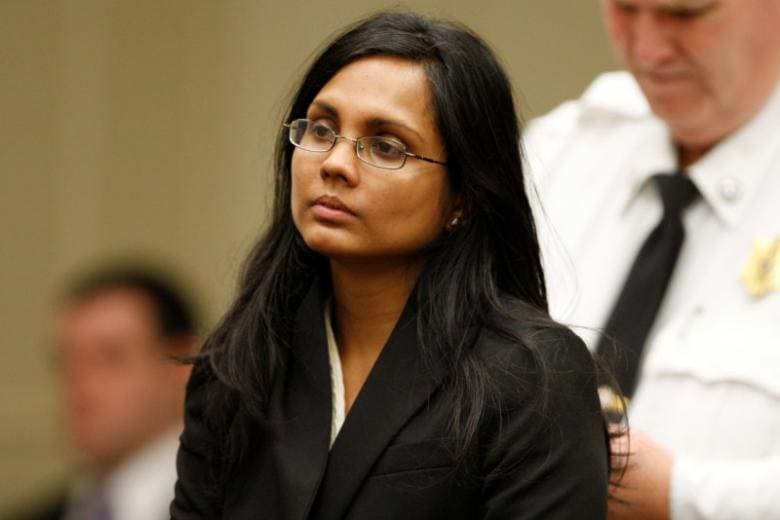Drug Lab Scandal Leads To Thousands Of Drug Case Dismissals, But What Does This Prove?
On Tuesday, the biggest mass dismissal of wrongful convictions took place in a Boston courthouse. As a result, more than 23,000 low-level drug cases were dropped after it was proven that a rogue lab chemist had tainted evidence used to put these people in jail.
 This case doesn’t only showcase the tragic and perhaps inherently evil root of immoral laws such as the ones that comprise the U.S. anti-drug effort, it also helps us understand that even the illusion of unaccountability gives people enough incentives to produce poorly, no matter how damaging and nefarious their actions might be.
In this particular case, chemist Annie Dookhan — who worked for a private crime laboratory for ten years and whose co-workers always complained about — finally admitted to falsifying evidence tied to as many as 34,000 cases in 2013. But before then, she spent 10 years in that lab, helping prosecutors put innocent people in jail.
While the former chemist was arrested, she only spent three years in prison — a much shorter sentence than the ones handed to many of those she helped to convict.
But despite pressure to go over the cases impacted by Dookhan years earlier, prosecutors fought for a way to preserve the convictions. Thankfully, in this case, defense lawyers pressed on, helping to bring about 23,000 dismissals.
While Dookhan’s reasoning to have been involved in so many wrong convictions was never made clear, one can surely agree that prosecutors found no harm in accepting results from a chemist with a dubious track record. Why? Because their goal wasn’t to fight for justice but to uphold immoral laws.
When the state has the power to tell a consumer he or she isn’t allowed to do with their bodies what they will, the state also has the power to bend other rules. When not enough people are being convicted of drug-related charges, throwing caution to the wind and fabricating convictions out of thin air isn’t out of the question. With enablers such as Dookhan ready to please, it’s no wonder the number of drug convictions continues to rise, even as the number of overdoses also rise — because the state-sponsored war against drugs has nothing to do with safety but a lot to do with control.
So long as there’s a perverse incentive available, there’s always going to be a willing actor to take part in the show. After all, why would prosecutors go after the origin of the drug trade when they have so much low-hanging fruit at hand?
This case doesn’t only showcase the tragic and perhaps inherently evil root of immoral laws such as the ones that comprise the U.S. anti-drug effort, it also helps us understand that even the illusion of unaccountability gives people enough incentives to produce poorly, no matter how damaging and nefarious their actions might be.
In this particular case, chemist Annie Dookhan — who worked for a private crime laboratory for ten years and whose co-workers always complained about — finally admitted to falsifying evidence tied to as many as 34,000 cases in 2013. But before then, she spent 10 years in that lab, helping prosecutors put innocent people in jail.
While the former chemist was arrested, she only spent three years in prison — a much shorter sentence than the ones handed to many of those she helped to convict.
But despite pressure to go over the cases impacted by Dookhan years earlier, prosecutors fought for a way to preserve the convictions. Thankfully, in this case, defense lawyers pressed on, helping to bring about 23,000 dismissals.
While Dookhan’s reasoning to have been involved in so many wrong convictions was never made clear, one can surely agree that prosecutors found no harm in accepting results from a chemist with a dubious track record. Why? Because their goal wasn’t to fight for justice but to uphold immoral laws.
When the state has the power to tell a consumer he or she isn’t allowed to do with their bodies what they will, the state also has the power to bend other rules. When not enough people are being convicted of drug-related charges, throwing caution to the wind and fabricating convictions out of thin air isn’t out of the question. With enablers such as Dookhan ready to please, it’s no wonder the number of drug convictions continues to rise, even as the number of overdoses also rise — because the state-sponsored war against drugs has nothing to do with safety but a lot to do with control.
So long as there’s a perverse incentive available, there’s always going to be a willing actor to take part in the show. After all, why would prosecutors go after the origin of the drug trade when they have so much low-hanging fruit at hand?
What do you think?
Rate the degree to which government authorities should intervene on this issue:
Unlikely
Most likely

Alice
Author
Advocates for Self-Government is nonpartisan and nonprofit. We exist to help you determine your political views and to promote a free, prosperous, and self-governing society.
Subscribe & Start Learning
What’s your political type? Find out right now by taking The World’s Smallest Political Quiz.


























